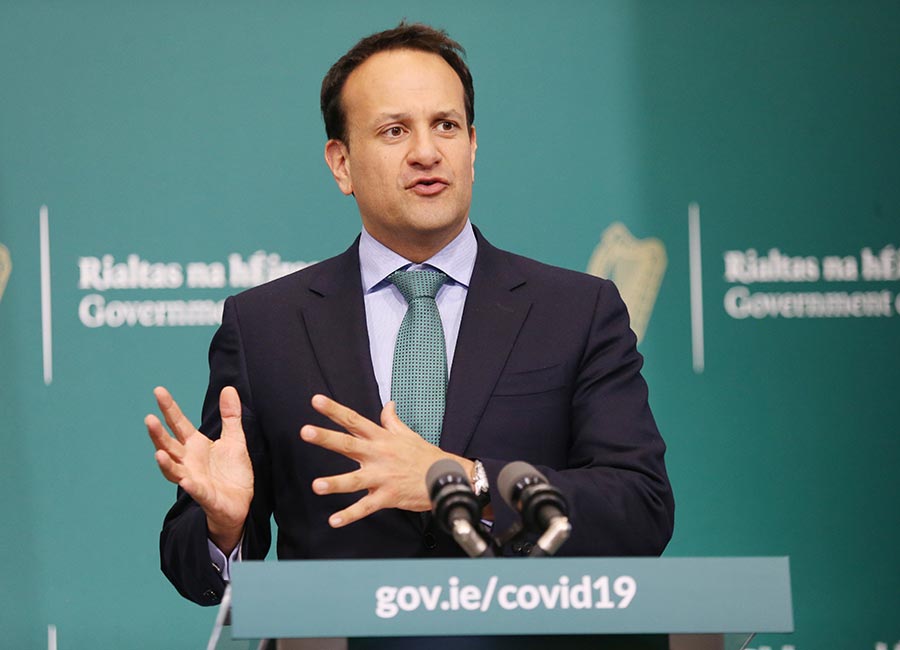Ireland faces energy "rationing" if the war in Ukraine causes gas shortages, the Central Bank warned yesterday.
Half of the country's electricity is generated by gas-fired power stations so disruption would affect many thousands of families' power supply, as well as their heating.
The news comes as the Tánaiste warned the rise in inflation and the cost-of-living crisis will impact us for years.
Central Bank director of economics and statistics Mark Cassidy said: "We're not forecasting that there will be energy rationing - it cannot be ruled out. I think if there were to be acute shortages of gas later in the year, we're probably talking the winter, when the demand would be greatest." He added: "Of course, if there was to be rationing, it would very much depend upon the nature of that rationing, but hopefully the use of gas in those circumstances could be prioritised to minimise the effects on businesses and households."
Leo Varadkar has said the cost-of-living pressure is an international crisis that can't be solely blamed on the war in Ukraine. The Tánaiste said that, while the Government can respond to the price rises, it cannot bring in new measures to offset a particular price increase every few weeks.
"There are lots of reasons as to why we're seeing inflation roar across the world at the moment and lots of reasons why we're seeing the cost of living rise," he said yesterday.
"That's to do with monetary policy, it has to do with the pandemic and supply chains, it is to do with the war in Ukraine as well."

He also said that "I don't think we can come back every few weeks with a new measure to offset a particular price increase", adding: "We need to see this for what it is, which is an international crisis, an increase in inflation that's going to be with us for years, more so than months."
The warning came as supplier Iberdrola yesterday announced a new price increase, adding €540 to the average family's annual energy bill in a move that will impact around 10,000 customers.
Daragh Cassidy, of price comparison site Bonkers.ie, said: "To say these are unprecedented times for the energy sector is an understatement. More price hikes from suppliers later in the year can't be ruled out."
The current wave of price rises is expected to see inflation peak at an eye-watering 8%, the Central Bank's latest Quarterly Bulletin forecasts.
As well as energy price increases, inflation is also starting to affect food "substantially".
However, the Central Bank is forecasting wage rises later this year to help make up for the fact that "real incomes will fall this year".
Mr Cassidy said: "Despite the challenging conditions, a tightening labour market is expected, with stronger and broader-based wage growth.
"This will be welcomed as real incomes will likely fall this year." The inflation estimate for March is 6.9% but will rise even higher in the coming months, said Mr Cassidy, adding: "We think this could peak around 8%."
If the Ukrainian crisis keeps energy prices high it would be a "perfect shock" to the economy but it would speed up the shift to renewables, he also said. Despite the war, Irish exports are forecast to grow by 8% this year, 6.2% next year and 6% in 2024.
Consumer price inflation is expected to average 6.5% this year, with wholesale energy prices the primary factor driving inflation at present.
Energy and food prices are also likely to rise substantially in the coming months.
Mr Cassidy said: "Inflation is forecast to slow to 2.8% in 2023 and 2.1% in 2024. Consumption is forecast to grow by 7.4% this year, slowing to 4.7% and 3.9% in 2023 and 2024, respectively.
"The adjustment of the labour market through the pandemic has been testament to the strength of the recovery, with numbers employed now exceeding 2019 levels and the standard unemployment rate at around 5%."









